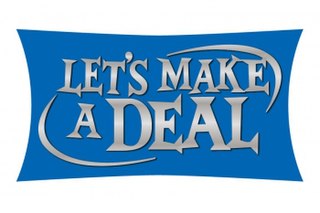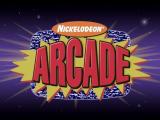
A game show is a genre of broadcast viewing entertainment where contestants compete for a reward. These programs can either be participatory or demonstrative and are typically directed by a host, sharing the rules of the program as well as commentating and narrating where necessary. The history of game shows dates back to the invention of television as a medium. On most game shows, contestants either have to answer questions or solve puzzles, typically to win either money or prizes. Game shows often reward players with prizes such as cash, trips and goods and services provided by the show's sponsor.

The Price Is Right is an American television game show where contestants compete by guessing the prices of merchandise to win cash and prizes. A 1972 revival by Bob Stewart, Mark Goodson, and Bill Todman of their 1956–1965 show of the same name, the new version added many distinctive gameplay elements. Contestants are selected from the studio audience: the announcer calls their name, invoking them to "Come on down!", the show's famous catchphrase.
Who Wants to Be a Millionaire? is an international television game show franchise of British origin, created by David Briggs, Mike Whitehill and Steven Knight. In its format, currently owned and licensed by Sony Pictures Television, contestants tackle a series of multiple-choice questions to win large cash prizes in a format that twists on many game show genre conventions – only one contestant plays at a time, similar to radio quizzes; contestants are given the question before deciding whether to answer, and have no time limit to answer questions; and the amount offered increases as they tackle questions that become increasingly difficult. The maximum cash prize offered in most versions of the format is an aspirational value in local currency, such as one million pounds in the UK or 75 million rupees in India.

Hollywood Squares is an American game show in which two contestants compete in a game of tic-tac-toe to win cash and prizes. The show piloted on NBC in 1965 and the regular series debuted in 1966 on the same network. The board for the game is a 3 × 3 vertical stack of open-faced cubes, each occupied by a celebrity seated at a desk and facing the contestants. The stars are asked questions by the host and the contestants judge the truth of their answers to gain squares in the right pattern to win the game.

Press Your Luck is an American television game show created by Bill Carruthers and Jan McCormack. On each episode, contestants answer trivia questions to earn "spins" on a randomly cycling game board whose spaces display cash, prizes, extra spins, special items, or the show's mascot, a cartoon creature known as the Whammy. Landing on a Whammy eliminates any cash and prizes accumulated while also displaying a short comedic animation. Its format is a revival of an earlier Carruthers production, Second Chance, which was hosted by Jim Peck and aired on ABC in 1977. The original version of Press Your Luck aired on CBS between 1983 and 1986. This version featured Peter Tomarken as host, Rod Roddy as announcer, and Carruthers as both director and voice of the Whammy.

Let's Make a Deal is a television game show that originated in the United States in 1963 and has since been produced in many countries throughout the world. The program was created and produced by Stefan Hatos and Monty Hall, the latter serving as its host for nearly 30 years.

Beat the Clock is an American television game show that involves people trying to complete challenges to win prizes while faced with a time limit. The show was a creation of Mark Goodson-Bill Todman Productions.

Play Your Cards Right is a British television game show based on, and played similarly to, the American show Card Sharks.
The Joker's Wild is an American television game show that aired at different times between 1972 and 2019. In the show, contestants answer questions based on categories determined randomly by a mechanism resembling a slot machine. The show's title refers to the game's slot-machine mechanism also having jokers.

Twenty-One was an American game show originally hosted by Jack Barry that aired on NBC from 1956 to 1958. Produced by Jack Barry-Dan Enright Productions, two contestants competed against each other in separate isolation booths, answering general-knowledge questions to earn 21 total points. The program became notorious when it was found to be rigged as part of the 1950s quiz show scandals, which nearly caused the demise of the entire genre in the wake of United States Senate investigations. The 1994 film Quiz Show is based on these events. A new version of the show aired on NBC in 2000 with Maury Povich as host.

Fun House is an American children's television game show that aired from September 5, 1988, to April 13, 1991. The first two seasons aired in daily syndication, with the Fox network picking it up and renaming it Fox's Fun House for its third and final season.

Talk About is a game show produced in Canada by CBC Television, which bears some similarities to the board game Outburst. Originally produced by CBC for the 1988–89 season, it was later picked up for American television syndication, airing from September 18, 1989, to March 16, 1990, with repeats later airing on the USA Network from June 28 to December 31, 1993; on GameTV from January 3, 2011, to September 2015; from July 1, 2019, to September 12, 2021; and since February 28, 2022; and on Buzzr starting May 30, 2022. Taped at stage 40 at the CBC Vancouver studios via local station CBUT in Vancouver, British Columbia, the show was hosted by Wayne Cox with local radio personality Dean Hill as announcer, while Doc Harris filled in for Hill during Season 1.

Gameshow Marathon is an American television program which aired on CBS from May 31 to June 29, 2006. It is based on the United Kingdom series Ant & Dec's Gameshow Marathon which aired on ITV in 2005. It also aired in Canada on CTV.

Uh Oh! is a Canadian television game show that was created by Rick Watts and Frank Young. Following a sneak preview at YTV Psykoblast on August 16, Uh Oh! aired from August 22, 1997 to April 19, 2003 on YTV, and was a spin-off of the popular variety show It's Alive!, which also aired on YTV. Uh Oh! was part of It's Alive's game show segment during its third season, but existed as a parody during its second season. As of 2023, Uh Oh! is the third longest-running show on YTV, behind Hit List and Video & Arcade Top 10, both of which aired for 14 and 15 years respectively. For its entire run, Uh Oh! was taped at Global Television in Toronto, Ontario. The series ended on April 19, 2003.

Video & Arcade Top 10 was a Canadian game show broadcast on YTV from 1991 to 2006. Filmed in Toronto, Ontario, it was a competitive game show in which contestants played against each other in video games for prizes, with assorted review and profile segments on current games, music, and movies featured as well. V&A Top 10 is one of a select few English language Canadian game shows to run nationally for at least 15 years, joining Front Page Challenge, Reach For The Top, and Definition in that category. Reruns of the series from the late 1990s and 2000s aired on GameTV from November 2011 to September 2012.

Nick Arcade is an American children's game show created by James Bethea and Karim Miteff and hosted by Phil Moore, with Andrea Lively announcing, that aired on Nickelodeon in 1992, airing originally during weekend afternoons, with reruns airing until September 28, 1997. It was taped at Nickelodeon Studios at Universal Studios Florida in Orlando. In Nick Arcade, two teams of contestants played two initial trivia rounds, with the winning team advancing to the "Video Zone" to play against the virtual "Video Game Wizard" of the day.
Jeopardy! is an American television game show created by Merv Griffin. The show is a quiz competition that reverses the traditional question-and-answer format of many quiz shows. Rather than being given questions, contestants are instead given general knowledge clues in the form of answers and they must identify the person, place, thing, or idea that the clue describes, phrasing each response in the form of a question.
Family Game Night is an American television game show based on Hasbro's family of board games and EA's video game franchise of the same name. The show was hosted by Todd Newton. Burton Richardson was the announcer for the first two seasons; he was replaced by Stacey J. Aswad in the third season, and Andrew Kishino was hired for the fourth season. The 60-minute program debuted on October 10, 2010, on The Hub ; it was previewed on October 9, 2010, on its sister channel, TLC. Seasons 1 and 2 contained 26 and 30 episodes respectively. Seasons 3, 4 and 5 each contained 15 episodes. Season 2 premiered on Friday, September 2, 2011, with additional games being added. The games added to the second season included Cranium Brain Breaks, Green Scream, Ratuki Go-Round, Simon Flash, Operation Sam Dunk, Trouble Pop Quiz, and Spelling Bee. However games from the previous season were still kept.

Scrabble Showdown is an American game show created for the American cable network The Hub. The program was based on the board game Scrabble and was hosted by Justin Willman. It ran from September 3, 2011, to April 15, 2012.















